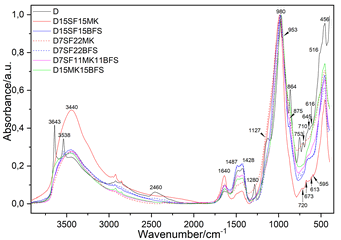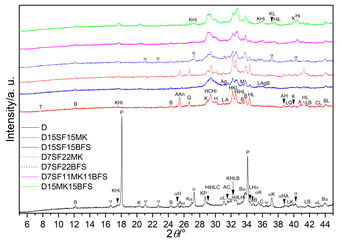Investigation of the degradation impact of high temperature and pressure
Formation and stability of nanocrystalline and crystalline phases occurring in cementitious systems at higher temperatures and pressures significantly influence the properties of materials, and thus the durability and the lifetime of geothermal wells. Transformations of primary, mainly amorphous, hydration products above 100 °C to crystalline ones accompanying the increase of permeability and the degradation of strength are widely investigated. However, the majority of these studies deal with the effect of hydrothermal conditions and high temperatures and neglect the influence of higher pressures. Although only the kinetic aspect of pressure is usually presented, it has been shown that high pressures can affect also microstructure, formation and stability of crystalline phases, and their distribution in the material.
Investigation in this research area is focused on:
• influence of high temperatures on early and middle stages of multicomponent cement composites hydration,
• evaluation of individual and simultaneous effects of temperatures up to 150 °C and pressures up to 18 MPa on the phase composition of composites using the combination of thermogravimetric, X-ray diffraction, and Fourier Transform Infrared analyses in the mid-IR region,
• assessment of pore structure – mechanical properties – phase composition relationships,
• optimization of initial compositions,
• design of cementitious materials for specific conditions in wells in Slovakia.


Fig.1. The MIR spectra of the samples after hydrothermal treatment at 18 MPa and 150 °C for 7 days (left) and XRD patterns of the samples cured at 18 MPa and 150 °C for 7 days (right).

 contact
contact